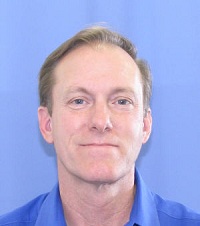
CLEARFIELD – The case against a Morrisdale man accused of stealing funds from his employees was discussed in Clearfield County Court.
Timothy Lee Kephart, 55, Hummingbird Road, Morrisdale, an inmate of the jail, is charged with 78 counts of theft by unlawful taking, 328 counts of theft by deception, 78 counts of receiving stolen property and 100 counts of theft by failure to make required disposition of funds received.
Kephart is currently serving a 46-month sentence at the Federal Correctional Institution at Loretto for his involvement in a $3.6 million check-kiting scheme against a bank in Huntingdon, Ohio, according to a previous press release from District Attorney William A. Shaw Jr. Kephart will remain in the Clearfield County Jail as this case moves through the court system.
Kephart’s attorney, Chris Pentz, had previously filed motions requesting specific information on the charges. There are many allegations and he is looking for a list of which actions resulted in each of the many charges.
Shaw stated during a hearing that the reason the case was scheduled for court that day was because they wanted to put a plea agreement on the record. But, “we were unable to reach an agreement,” he told President Judge Fredric J. Ammerman.
The case will now continue to move toward a trial, which is scheduled for two weeks in late July.
Shaw did say he would make the charges more specific and do an amended list with information on each count.
Pentz noted that after he reviews the list, there may need to be some adjustments to the grading of the charges.
Ammerman asked Shaw to provide the amended information to Pentz by June 15. The case is set for jury selection June 18.
The criminal complaint in the Clearfield County case states that Kephart was the president of the Kephart Trucking Company, and led the company in its day-to-day operations. During this time period, employees’ paychecks depicted that money was being withheld for a number of items, including 401K contributions, 401K loan repayments and medical insurance coverage.
However, it was found that the withholdings were not being utilized for the appropriate purposes, and the monies were instead being held in the company checking account and used for other expenses, causing a shortage of individual 401K funds and a lapse in payment of insurance premiums.
As a result of Kephart’s failure to pay medical insurance premiums, the insurance company retroactively cancelled the insurance coverage, which caused a number of employees to be responsible for their medical bills. It was also determined that several employees were not paid for days of service or vacation pay.
After an extensive investigation, authorities discovered that there were 131 victims affected by the defendant’s actions. The victims reported that Kephart acknowledged the missing funds and assured everyone that they would be paid back; however, nothing was ever paid back to any of the victims.
The investigation involved several former employees of the company and creditors. The former controller for Kephart Trucking, Homer Neeper, told investigators he worked for the company for 43 years. He first started noticing things were “going the wrong way” in 1999-2000 after Wallace Kephart turned the company over to Timothy Kephart as the new president. The 401K plan was behind starting in November of 2011 to February of 2012.
In the spring 2012 when the company was in need of money, they began using a group of investors from Lancaster, which reported they invested $6 million in the business.
Police spoke with David Kephart, who had been the vice president of the company. He said his brother and Mark Michael made the decisions on the everyday running of the company. When he began questioning things, his relationship with his brother became more strained and eventually David Kephart was fired.
A contractor told police Kephart made personal checks out to him to pay for a $300,000 stable. Occasionally these checks would bounce and Kephart then wired money directly into his account. The contractor did not know from which account those payments originated.